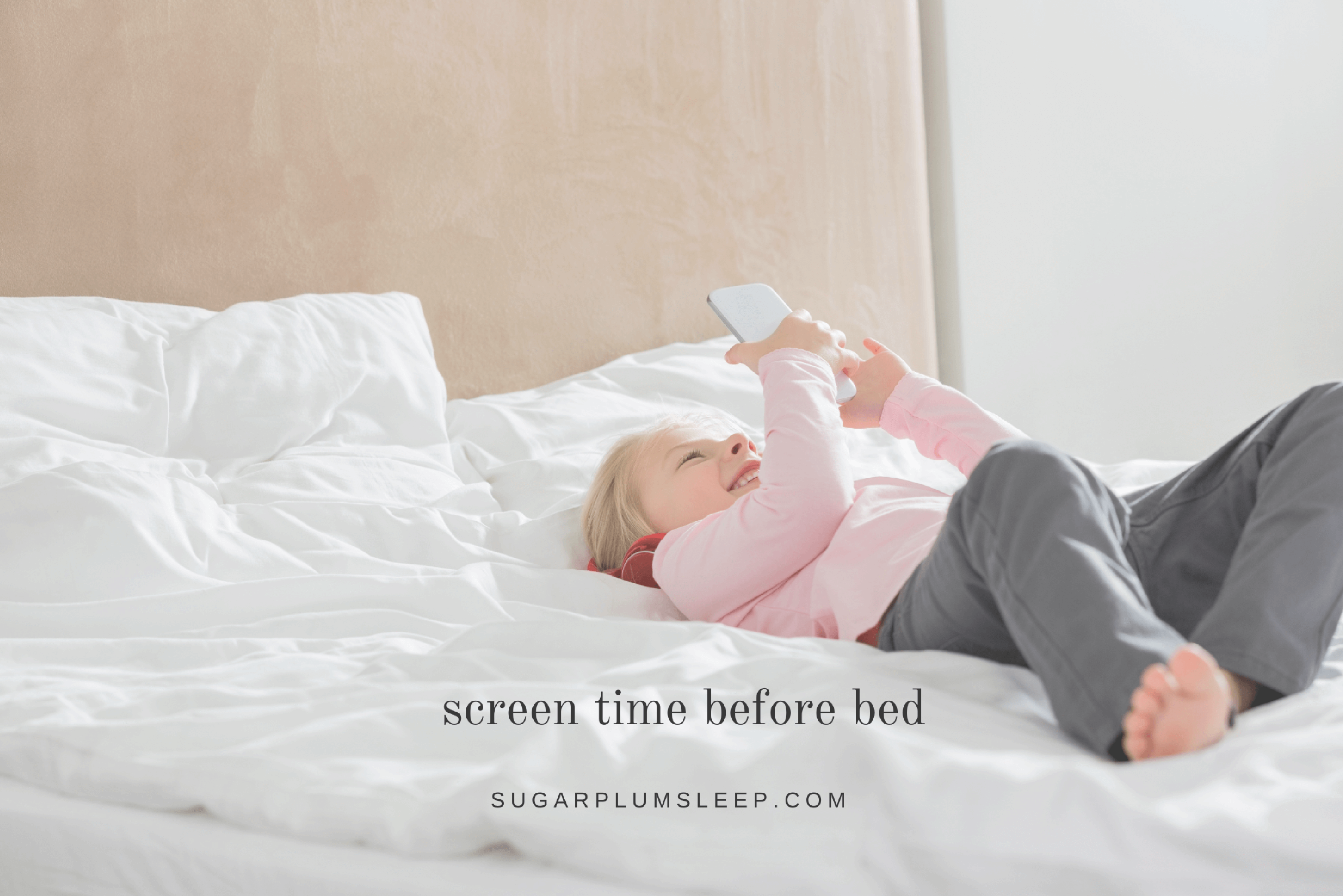We all have our bedtime routine, with our children, and with ourselves. It’s a mix between preparing for sleep and practicing good hygiene. These two elements are both very important for your children to learn. Your routine may look exactly like the one mentioned above, or you may have some variations or extra add-ins. If your routine is working then there is probably little need to change it. However, if you’re experiencing some difficulty around your child’s bedtime, or even falling asleep yourself, there may be a hidden culprit you haven’t considered yet.

Screen time too close to bedtime
In this day and age where everything is online and we’re all digitally connected, it is very common, in the average household that the screens aren’t shut off until the last light is shut off and the last person is heading to bed. Just as chronically forgetting to brush your teeth before sleep can be detrimental to your dental health, too much screen time in the window before bedtime can have a negative impact on your sleep and should be considered poor bedtime hygiene.
Is your child having difficulty falling asleep, even after a regular and predictable bedtime routine? It’s important to not only have a bedtime for children, but also a bedtime for devices. Non-screen related activities are encouraged for children as much as two hours before bed. The window before bed needs to be one of calm. Instead of watching TV or playing computer/video games, consider introducing a puzzle or board game.
Why is screen time before bed a problem?
Studies show that the blue light emitting from a TV or computer screen can affect natural sleep rhythms and adversely affect the ability to fall asleep. In children this can be linked to sleep deficit even though the set time for bed is a reasonable one. The lack of quality sleep can also carry over into the next day. This disruption to sleep may have a negative impact on behaviour and cause increased aggression.
Adults are affected by these same symptoms when there is no break between staring at a screen and turning in for the night. Studies have shown that adults also have trouble falling asleep, and although they may log as many hours of sleep as their no-device-before-bedtime counterparts, they will complain of changes in sleep demand and the quality of their sleep, leaving them feeling unrested and still tired in the morning.
The Bottom Line
The bottom line for children, and adults alike, is this: Extensive media usage before bed is bad for sleep initiation. As you make positive changes in media use for your children, challenge yourself to make some changes as well. Once your household is experiencing great sleep and fresh happy mornings you’ll wonder why you didn’t try it sooner!


Share Your Thoughts.